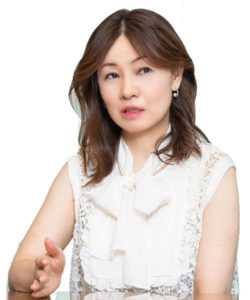Women must take a leap of faith to seize leadership opportunities and rally against traditional cultural codes
“Ever since I was a young girl, I’ve found it difficult to watch women being treated in an inferior or unequal manner. From then on, I have been passionate about fighting against gender discrimination.
When I became a lawyer 20 years ago, I was one among only 12% of women. Today in Japan, 20% of lawyers are women and in-house, women make up 40% of lawyers.

President
Japan In-House Lawyers Association
In the US, I’ve heard that clients are demanding law firm diversity, not just in terms of more women, but more representation from other minorities such as the LGBT community. It would be ideal if clients in Japan demanded the same, but they themselves have not diversified yet, so they can’t expect others to do so. First, we have to change our companies from the inside.
Fortunately, Japanese Prime Minister Shinzo Abe’s ‘womenomics’ campaign is geared towards seeing women fill 30% of leadership positions by 2020. As a result, you find many high-ranking women in government these days. Private entities, however, continue to lag behind.
Things are slowly changing because of corporate governance pressure. Many companies have decided to appoint outside directors and they tend to choose woman lawyers. That is progress, but one woman out of 15-20 board members is not enough.
Across Japanese companies and law firms, the situation is more or less the same. There are not enough women. Foreign companies and law firms are much further ahead.
Gender diversity is my first priority, but I believe you have to hold a position of power to make a bigger impact. Before I became president of JILA [Japan In-house Lawyers Association], women comprised only 10% of board members. Now, we have a total of 40% – an accomplishment of which I’m very proud. Each time I have a chance to visit the Bar Association, I remind them of JILA’s statistics so they feel pressured to follow our example.
There are other related issues such as the pay gap, but I think redressing the imbalance of men and women is of prime concern. If women make up at least 30%, it will strengthen our voices and give us real decision-making power.
Most women have domestic and childcare responsibilities, so they cannot commit the same amount of time to work as their male counterparts. They often have to leave the office earlier and this impacts the results they can deliver. As long as law firms continue to use billable hours, women will struggle and are unlikely to become partners. This challenge is not confined to the legal profession.
Our cultural values also create barriers for women. Girls are generally raised to be quiet, step down and have fewer experiences with regard to leadership and speaking up, even within the family. So it starts from a really early age. We are trained that way. Men and boys have been raised differently. Even at kindergarten and in elementary schools, teachers expect boys to assume leadership roles, or be head of the class. As a woman, you don’t get that practice.
Recently, I was elected as an independent director of a company, and that was good news, but I felt I hadn’t been trained for that role. I accepted the position because I knew it was a good opportunity. I advise young JILA members, especially young women lawyers, to speak up and seize opportunities, even if they don’t feel comfortable doing so. Sometimes we have to remind ourselves to be assertive and confident.
If you’re a young woman lawyer at a company, you could feel isolated in an environment dominated by men. However, at JILA, women can participate in our diversity group, giving them a chance to interact with and emulate different role models.
Women lawyers sitting on JILA’s board can become high-level decision makers even if they don’t yet hold those positions at their companies. They can use JILA as a platform to advance and get training. It’s only one organization, but it can help many.”
Senior women lawyers across Asia share personal stories of successes, struggles and strategies for a more inclusive legal profession. The following mosaic of personal stories identifies some of the nuances that typify women’s experiences in particular Asian jurisdictions, while also drawing on the wealth of shared experiences that bind them.





























